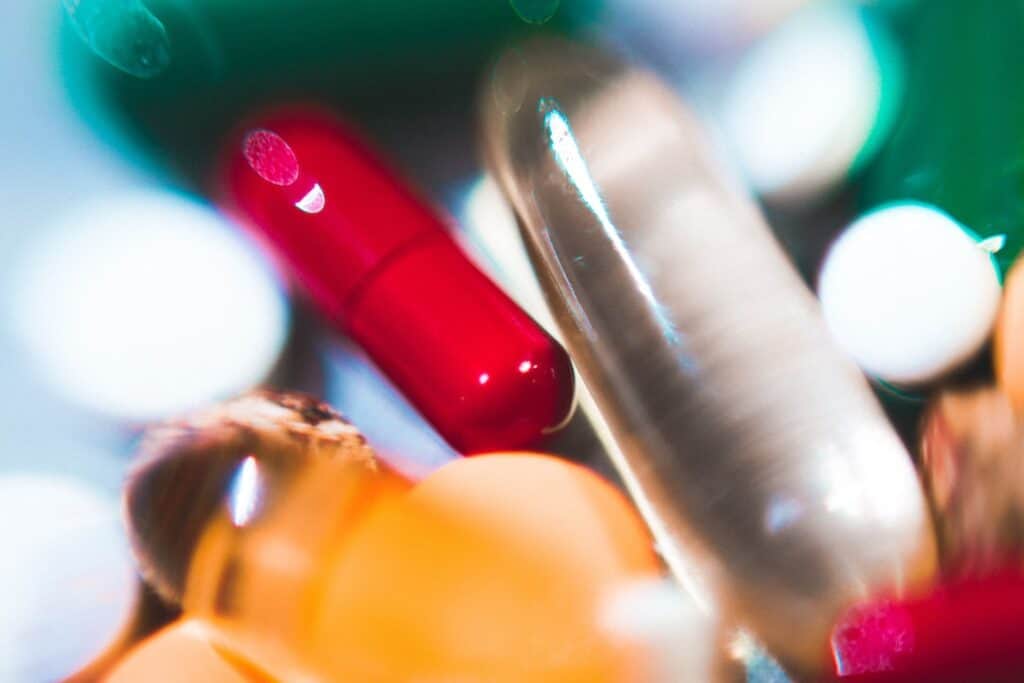Probiotics are live microorganisms that provide health benefits when consumed in adequate amounts. They are often referred to as “good bacteria” because they help maintain a healthy balance of microorganisms in the gut. Gut health is particularly important for babies, as it plays a crucial role in their overall well-being and development.
Baby probiotics are specifically formulated for infants and young children. They contain strains of beneficial bacteria that are known to support digestive health and boost the immune system. These probiotics can be given to babies in various forms, such as drops, powders, or even added to baby food.
Understanding the Benefits of Probiotics for Babies
Probiotics work by colonizing the gut with beneficial bacteria, which helps maintain a healthy balance of microorganisms. In babies, this can be particularly beneficial as their immune systems are still developing. By promoting a healthy gut microbiome, probiotics can help strengthen the immune system and reduce the risk of infections.
Research has shown that probiotics can also help alleviate common digestive issues in babies, such as colic, constipation, and diarrhea. They can help regulate bowel movements and improve the overall digestion process. Additionally, probiotics have been found to have a positive impact on conditions like eczema and allergies in infants.
Several studies have been conducted to evaluate the effectiveness of probiotics for babies. One study published in the Journal of Pediatrics found that infants who received probiotics had a reduced risk of developing allergies compared to those who did not receive probiotics. Another study published in the Journal of Pediatric Gastroenterology and Nutrition found that probiotics helped improve symptoms of colic in infants.
What are the Different Types of Baby Probiotics?
There are different strains of probiotics that can be beneficial for babies. Some common strains include Lactobacillus acidophilus, Bifidobacterium infantis, and Streptococcus thermophilus. Each strain has its own unique benefits and may be more suitable for certain conditions.
When choosing a probiotic for your baby, it’s important to consider the specific strain and its intended benefits. For example, if your baby is experiencing digestive issues, a probiotic with Lactobacillus acidophilus may be more appropriate. On the other hand, if your baby has eczema or allergies, a probiotic with Bifidobacterium infantis may be more beneficial.
Probiotics for babies are available in various forms, including drops, powders, and even chewable tablets. Drops are often the preferred option for infants, as they can be easily mixed with breast milk or formula. Powders can be added to baby food or dissolved in water. Chewable tablets are typically recommended for older children who can safely consume solid foods.
How Safe are Baby Probiotics?
Safety concerns regarding probiotics for babies have been raised by some experts. While probiotics are generally considered safe for most infants, there are some risks associated with their use.
One of the main concerns is the risk of infection. Since probiotics contain live bacteria, there is a small chance that harmful bacteria could be present in the product. This is why it’s important to choose a reputable brand and ensure that the product has been properly tested for safety.
Another concern is the potential for allergic reactions. Some babies may be allergic to certain strains of probiotics or other ingredients in the product. It’s important to carefully read the labels and consult with a healthcare professional if you have any concerns about allergies.
To ensure the safety of probiotics for babies, it’s recommended to follow the guidelines provided by healthcare professionals and manufacturers. These guidelines typically include starting with a low dose and gradually increasing it if necessary. It’s also important to store probiotics properly and avoid exposing them to extreme temperatures or moisture.
Possible Side Effects of Baby Probiotics
While probiotics are generally safe for babies, there are some potential side effects that parents should be aware of. Common side effects include mild digestive issues such as gas, bloating, and diarrhea. These side effects are usually temporary and subside on their own.
In rare cases, more serious side effects can occur. These may include severe allergic reactions, infections, or complications in babies with weakened immune systems. It’s important to monitor your baby closely for any signs of adverse reactions and seek medical attention if necessary.
If your baby experiences any side effects from probiotics, it’s important to consult with a healthcare professional. They can help determine whether the side effects are related to the probiotics or if there may be another underlying cause.
Factors to Consider Before Giving Baby Probiotics

Before giving probiotics to your baby, there are several factors that should be taken into consideration. These include the age of the baby, their health condition, any allergies or intolerances they may have, and their medical history.
The age of the baby is an important factor to consider when deciding whether to give them probiotics. While probiotics are generally safe for infants, it’s recommended to wait until the baby is at least a few weeks old before introducing them. This allows their digestive system to mature and reduces the risk of adverse reactions.
The health condition of the baby is another important factor to consider. If your baby has a weakened immune system or a chronic health condition, it’s important to consult with a healthcare professional before giving them probiotics. They can help determine whether probiotics are appropriate and recommend the best course of action.
If your baby has any known allergies or intolerances, it’s important to carefully read the labels of probiotic products and avoid any ingredients that may trigger a reaction. If you’re unsure about whether a particular probiotic is safe for your baby, it’s best to consult with a healthcare professional.
The medical history of the baby is also an important consideration. If your baby has a history of infections or other medical conditions, it’s important to discuss the use of probiotics with a healthcare professional. They can help determine whether probiotics are appropriate and recommend the best course of action.
Recommended Dosage for Baby Probiotics
The recommended dosage for baby probiotics can vary depending on the specific strain and product. It’s important to carefully read the labels and follow the guidelines provided by the manufacturer.
In general, it’s recommended to start with a low dose and gradually increase it if necessary. This allows the baby’s digestive system to adjust to the probiotics and reduces the risk of side effects. It’s also important to give the probiotics consistently, as this helps maintain a healthy balance of microorganisms in the gut.
To calculate the right dosage for your baby, it’s best to consult with a healthcare professional. They can take into account factors such as the baby’s age, weight, and health condition to determine the appropriate dosage.
It’s important to note that giving too much or too little probiotics can have negative effects. An overdose of probiotics can cause digestive issues such as diarrhea, while an underdose may not provide any benefits. It’s best to follow the recommended dosage guidelines and consult with a healthcare professional if you have any concerns.
When to Start and Stop Giving Baby Probiotics
The age at which you should start giving probiotics to your baby can vary depending on their individual needs and health condition. In general, it’s recommended to wait until your baby is at least a few weeks old before introducing probiotics. This allows their digestive system to mature and reduces the risk of adverse reactions.
As for when to stop giving probiotics to babies, there is no set age or timeframe. It’s important to monitor your baby’s health and consult with a healthcare professional if you have any concerns. In some cases, probiotics may be recommended for a specific period of time to address a particular health issue. In other cases, probiotics may be continued as part of a long-term maintenance plan.
It’s also important to note that probiotics are not a substitute for a healthy diet and lifestyle. It’s important to continue providing your baby with a balanced diet and practicing good hygiene to support their overall health and well-being.
Best Practices for Administering Baby Probiotics
Administering probiotics to babies can be done in various ways, depending on the form of the probiotic. Drops are often the preferred option for infants, as they can be easily mixed with breast milk or formula. Powders can be added to baby food or dissolved in water. Chewable tablets are typically recommended for older children who can safely consume solid foods.
When administering probiotics to your baby, it’s important to follow the instructions provided by the manufacturer. This includes using the correct dosage and storing the product properly. It’s also important to practice good hygiene when handling probiotics, such as washing your hands before preparing the product.
To incorporate probiotics into your baby’s diet, you can consider adding probiotic-rich foods such as yogurt or fermented vegetables. However, it’s important to choose age-appropriate options and consult with a healthcare professional if you have any concerns.
Final Thoughts on Baby Probiotics Safety
In conclusion, baby probiotics can be beneficial for infants and young children, as they support digestive health and boost the immune system. However, it’s important to consider the specific needs of your baby and consult with a healthcare professional before giving them probiotics.
While probiotics are generally safe for babies, there are some risks associated with their use. It’s important to choose a reputable brand, follow the recommended dosage guidelines, and monitor your baby closely for any signs of adverse reactions.
Probiotics should not be used as a substitute for a healthy diet and lifestyle. It’s important to continue providing your baby with a balanced diet and practicing good hygiene to support their overall health and well-being.
If you have any concerns or questions about probiotics for your baby, it’s best to consult with a healthcare professional. They can provide personalized advice and recommendations based on your baby’s individual needs.



